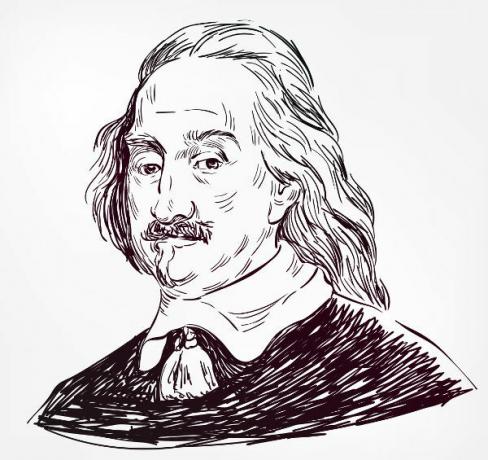Voltaire is, above all, a polemicist. He intends to fight against vain systems, against false opinions and condemns any attitude based on belief and superstition or even on purely abstract thoughts. However, he is not only content to destroy opinions, but he also possesses positive research convictions about truth, wisdom and happiness.
political ideal: Voltaire condemns the arbitrary, not the monarchical; but the monarch must conform his conduct to the demands of reason. A prince advised by philosophers and being himself a philosopher, will make his people happy, granting full degrees of freedom to his subjects, who, for in turn, having their spirit formed in philosophy, they willingly accept its tutelage, making public happiness reign under the law of despotism enlightened.
religious ideal: Voltaire condemns established religions, not rational faith in a divine prince. According to him, reason proves the existence of a God, the only possible explanation of the world, “to be necessary, eternal, supreme, intelligent”. This God, architect and worker, rules the world according to immutable laws; He secures universal order and can reveal himself as a just, vengeful and generous God. As for religion, it is necessary for the people, but it must outlaw dogmas, ceremonies and define itself not as a theological system, but as an institution of State. He was against any kind of intolerance, just as he believed in the freedom to reach the man's goals and not God's, criticizing the idea that this is the best of all worlds possible.
Do not stop now... There's more after the advertising ;)
moral ideal: Voltaire condemns metaphysical theories, not humble and honest reflection on the great problems. He discusses the nature of the soul, the existence of evil, the fate of man, etc., but always keeping a lot of prudence in his statements. He is also concerned with reconciling universal determinism with human freedom. Voltaire never pushes his pessimism into sterile hopelessness. He is, above all, careful to notice useful actions and tries to impart practical wisdom. Man must build his own happiness and help his neighbor to be happy: the most beautiful virtue is benevolence; the great law of the species is work.
This is how François-Marie Arouet, who uses the pseudonym Voltaire, reflects on his time, on men and political, religious and moral institutions, intending to replace the superstitious impulse by the moderation of ideals, curbing them through criticism that leads to awareness of Reason and its best utility.
By João Francisco P. Cabral
Brazil School Collaborator
Graduated in Philosophy from the Federal University of Uberlândia - UFU
Master's student in Philosophy at the State University of Campinas - UNICAMP
Philosophy - Brazil School
Would you like to reference this text in a school or academic work? Look:
CABRAL, João Francisco Pereira. "Voltaire: a brilliant polemicist"; Brazil School. Available in: https://brasilescola.uol.com.br/filosofia/voltaire-um-brilhante-polemista.htm. Accessed on June 27, 2021.

